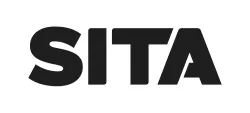
PhD Position in Early application of tolerance design
Danmarks Tekniske Universitet
Lyngby-Taarbæk, 1 stilling
The Department of Mechanical Engineering (MEK) of the Technical University of Denmark (DTU) has an open PhD position focusing on Early application of tolerance design in collaboration with Novo Nordisk. The project is part of the DTU-Novo Nordisk Robust Design consisting of one associate professor, one post doc, PhD students (one now completed) and two research assistants.
Responsibilities and tasks
Production companies continuously strive to develop high quality products that consistently meet user expectations. The process for developing these products is often based on a stage-gate model consisting of phases which each have a specific focus, e.g. idea generation, conceptualization, embodiment, detailed design, and production ramp-up. In each phase, a variety of solutions are proposed, evaluated and selected for being brought forward to the next development phase. An important aspect in the evaluation process is ‘tolerance analysis’, which is a means for analysing how the functional performance of the product is affected by variation from e.g. manufacturing, assembly and use conditions. This is especially important for functions which are key to the overall product functionality and safety of the product.
In recent decades, the field of tolerance analysis (or variation management as it is sometimes referred to) has been augmented with complex analysis tools such as Monte Carlo simulations, Geometrical Product Specifications, Statistical Process Control, and Process Capability Databases. Furthermore, the use of 3D-CAD software has led to the introduction of complex analysis software such as CETOL and Sigmund.
Despite these advances, the experience in industry is that tolerance analysis is either not carried out or carried out as a late-stage activity to validate and fine-tune the selected design solutions, rather than playing a pro-active role in designing, evaluating, selecting and optimising designs. As a consequence, solutions which are sensitive to variation are discovered late in the development process, and in some cases, not until the product is in production.
In other words, the trend has been towards increased precision and the ability to analyse complex designs and away from simple calculations carried out by the engineering designer at the point of design. There is therefore a real need for developing tools and methods for simple, early stage tolerance analysis that can support the inherent nature of early-stage development, including fast iterations, multiple proposed solutions and lack of full information (e.g. process capability data). The new approach should help to support and prioritise tolerance analysis activities in a systematic manner, such that key performance characteristics are identified and given higher priority.
Finally, influences and disturbances other than just dimensional variation from part manufacture must be considered. In order to take product robustness to the next level, tolerance analysis must include considerations related to variation in material properties, in assembly fixtures and operations, ambient conditions, time related variations such as mechanical creep, plasticising, corrosion, as well as external and internal loads.
Project Description
The first part of the project will be to conduct a review of literature and industrial best practice (interviews and observations from industrial use of tolerance analysis). The review will determine the state of the art, forming a categorisation of available techniques, including the benefits of each as well as the gaps in knowledge and projected future developments.
Outputs:
•Journal Paper review of state of the art.
•Presentation of the current possibilities with an example use of each on a Novo Nordisk part/product.
Following the initial review will be a re-scoping phase looks to re-evaluate the feasibility, the novelty and the importance of the main and sub-projects listed below. The criteria for their prioritisation and choice are as follows:
•Value – interview should be conducted both in industry and the academic community to establish the value of each of the sub projects, in particular in the case company.
•Novelty – The sub-project should culminate in distinctly different functionality from that provided by existing methods and tools.
•Feasibility – The sub-project should be scoped in such a way that it is feasible within the timeframe of the PhD project, not just in terms of its conception and use, but in the evaluation of its success and impact.
•Implementation – The sub-project should lend itself to integration with existing systems and should be easily integrated into industrial product development processes and procedures.
Main Project: The main project focuses on defining a coherent and comprehensive – yet simple – methodology for performing tolerance analysis suited for application in an industrial context. The methodology includes the link from functional requirements and Key Quality Characteristics of a product to parameter sensitivity. It may also be interesting to identify the possibilities of linking to FMECA (Failure Modes, Effects and Criticality Analysis) and VMEA (Variation Modes and Effects Analysis). This project would lead to a procedure for specifying and prioritising tolerance analysis work, including any necessary tools for defining tolerance chains prior to the CAD-model being built, benchmarking of solutions on the conceptual as well as the detailed design levels.
Sub Project 1: Inclusion of process capability data. Process capability data, including both real time production data for parts currently in production, and also projected variations that can be gained from geometric based process capability databases or ‘design from similar’ approaches. To get greater accuracy of prediction and simulation - tool, process and measurement uncertainty could also be included into the CAT software so that only the uncertainty related to the process need remain before ramp-up.
Sub Project 2: Integration of additional variation contributions.
The tolerance analysis software should be able to incorporate all 6 forms of variation from:
1.Manufacturing – Geometric and Dimensional part variation data to be quantified for prediction.
2.Assembly – Variation related to play and positioning variation due to the fixtures and assembly processes.
3.Ambient conditions – Variation imposed onto the parts simulating thermal expansion, moisture expansion, dust/dirt, UV curing etc.
4.Time – Variation imposed onto the parts simulating the effects of mechanical creep, wear, corrosion, etc.
5.Loading – It may be possible to include FEM simulation data to simulate the elastic deflection, compression and elongation of parts.
6.Material – Each material batch will subtly differ in properties which may have implications for the necessary tolerances.
Expected deliverables:
•Determine the state of the art of early-stage tolerance design methods
•Identify the most valuable directions for early-stage tolerance design in terms of increasing product robustness
•Propose a new and advance approach to tolerance design, extending beyond the state of art in terms of product robustness
•Evaluate the impact of the new proposal, benchmarked against the state of the art
•Propose an implementation approach into pilot projects and general uptake within an engineering organisation.
Typical deliveries will include journal publications of findings, selection of appropriate methods, relevant tools (software, templates, etc.) and demonstrators of application.
Value proposition to sponsor:
The value to Industry/Novo Nordisk is expected to be:
Tolerance analysis being more widely applied in organisations
?Faster development times due to a more timely application of tolerance analysis work and hence fewer loopbacks.
?More efficient tolerance allocation, leading to:
- Less scrap
- Greater product robustness (in life)
- Faster production ramp-up
- Better part interchange ability
Qualifications
Candidates should have a MSc degree or equivalent
Further qualifications:
Candidates should have a master's degree in engineering or a similar degree with an academic level equivalent to the master's degree in engineering. Industry experience and good knowledge of both mechanical design and production will be desirable. The candidate should have good mathematical/analytical skills.
The candidate should be knowledgeable about Robust Design, Reliability, Quality & Production Engineering and Six Sigma. The candidate should have very good understanding of design and development. Evidence of scientific writing skills required.
Approval and Enrolment
The scholarships for the PhD degree are subject to academic approval, and the candidates will be enrolled in one of the general degree programmes of DTU. For information about the general requirements for enrolment and the general planning of the scholarship studies, please see the DTU PhD Guide.
Assessment
The assessment of the applicants will be made by Professor Thomas J. Howard
We offer
We offer an interesting and challenging job in an international environment focusing on education, research, public-sector consultancy and innovation, which contribute to enhancing the economy and improving social welfare. We strive for academic excellence, collegial respect and freedom tempered by responsibility. The Technical University of Denmark (DTU) is a leading technical university in northern Europe and benchmarks with the best universities in the world.
Salary and terms of employment
The appointment will be based on the collective agreement with the Confederation of Professional Associations. The allowance will be agreed with the relevant union.
Workplace
The position will be based at DTU Lyngby campus. The period of employment is 3 years starting date: 15th December 2015.
Further information
Further information may be obtained from Associate Professor Thomas J. Howard (thow@mek.dtu.dk), tel.: +45 4525 4741.
You can read more about DTU Mechanical Engineering on <a href='javascript:openLinkWindow("http://www.mek.dtu.dk/english")' "="" data-cke-saved-href='javascript:openLinkWindow("http://www.mek.dtu.dk/english")'>http://www.mek.dtu.dk/english.
Application
Please submit your online application no later than 27th October 2015.
Applications must be submitted as one pdf file containing all materials to be given consideration. To apply, please open the link "Apply online," fill in the online application form, and attach all your materials in English in one pdf file. The file must include:
•A letter motivating the application (cover letter)
•Curriculum vitae
•Grade transcripts and BSc/MSc diploma (an official translation into English)
•Excel sheet with translation of grades to the Danish grading system (see guidelines and excel spreadsheet here)
Candidates may apply prior to obtaining their master's degree, but cannot begin before having received it.
Applications and enclosures received after the deadline will not be considered.
All interested candidates irrespective of age, gender, race, disability, religion or ethnic background are encouraged to apply.
DTU Mechanical Engineering comprises our research within the physical aspects in and behind the products we use every day. We strive to make constructions as strong and light and as cost effective as we can through the proper materials and intelligent construction. We reduce the emissions from propulsion and energy use by making the processes as efficient as possible.
DTU is a technical university providing internationally leading research, education, innovation and public service. Our staff of 5,800 advance science and technology to create innovative solutions that meet the demands of society; and our 10,300 students are being educated to address the technological challenges of the future. DTU is an independent academic university collaborating globally with business, industry, government, and public agencies.


